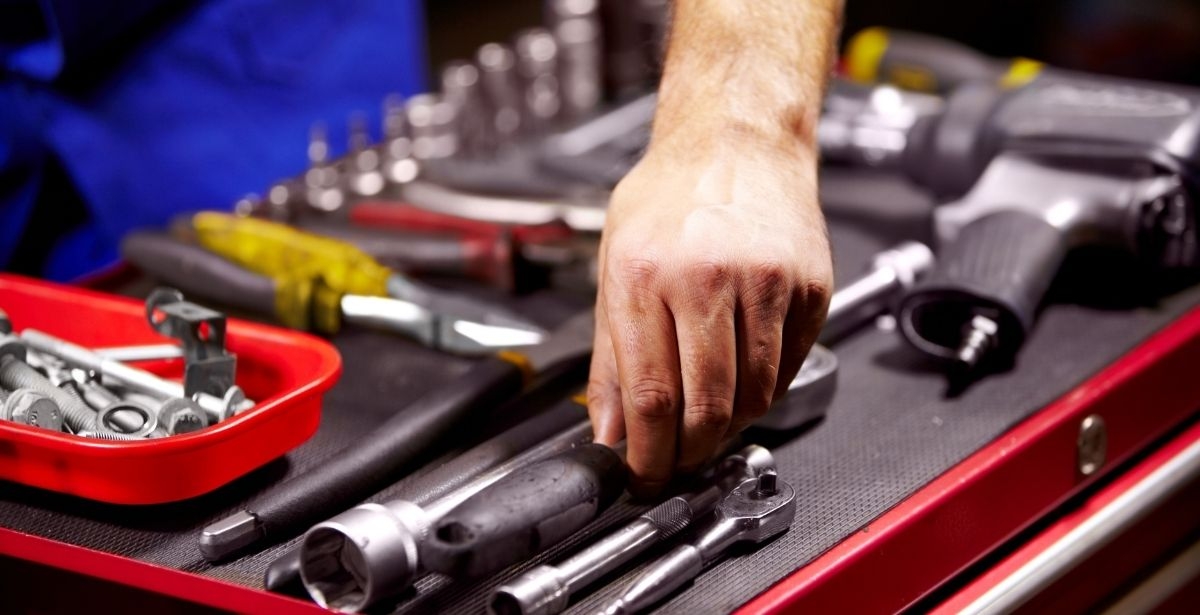
7 Must-Have Tools for an Auto Technician
As a trusted mechanic, you need to get the job done right—every time. That means that whether you’re a student, apprentice, or experienced professional, you must have the appropriate tools. Computers are a critical modern diagnostic device, but when it comes to the nuts and bolts of being a good technician, you need tools that can remove those nuts and bolts. From the basics to more unique tools, here are some of what you’ll need starting out and well into your career as an automotive technician.
Top Auto Mechanic Tools You’ll Need in Automotive School and Beyond
- Wrench and Socket Set - An indispensable tool, a wrench and socket set has multiple uses when you work on an auto. From spark plugs and cylinder heads to suspension and brake systems, parts need to be loosened, tightened, and taken apart. A metric wrench and socket set that goes from 6mm up to 24mm will become a staple in your tool collection. Add a ratchet extender to your collection when working in limited spaces, such as the engine compartment, to loosen or tighten hard to reach bolts.
- Battery - Powered Impact Wrench – This portable tool helps you remove extremely tight bolts and nuts from areas that are prone to rust, such as ball joints and other suspension parts. A mobile impact wrench is used by professional mechanics and motorsport pit crews for power in the shop and on the go.
- Automotive Stethoscope – As a mechanic, diagnosing strange vehicle sounds can be tricky. Professionals use stethoscopes to locate various vehicle noises and pinpoint what repair is needed. Instead of guessing, this invaluable tool helps amplify sounds that your ears might have a hard time detecting. Automotive stethoscopes often come with headphones, transmitters, and microphone clamps, which used together in the vicinity of the noise should help you determine the root cause of the issue.
- Digital Vernier Caliper – Upgrade from the traditional analog dial Vernier with a modern LCD display that shows measurement readings as a numeric value. These calipers use a linear encoder instead of a rack and pinion. They are far more accurate and easier to read. This tool ensures accuracy for essential measurements (in inches, centimeters, or millimeters), such as checking the close tolerance dimensions of bearings for replacements, and any kind of fabrication work.
- Screwdriver Set – As a professional mechanic you’ll need different screwdriver lengths for hard to reach workspaces and a variety of sizes for each head type:
- Flathead
- Crosshead head (Philips)
- Torx
- Allen
- Tire Pressure Gauge and Inflator – You’ll routinely work on tires as a professional mechanic. So, you’ll need an accurate pressure reading as you’re working. Some pressure gauges can inflate the tire at the same time they take a reading.
- Circuit Tester – To check for a complete electrical pathway between two points, you’ll need a circuit tester to see if an electrical system is wired correctly. Considering all the electrical systems involved in operating a car, this tool is crucial.
Are you looking for a hands-on automotive school that trains you to start a new career as an automotive technician? Acquire the skills you need to diagnose, repair, and maintain most vehicle makes and models so that you can pursue a career in this essential and growing field. The Automotive Technology program at Porter and Chester Institute in Connecticut and Massachusetts will prepare you to become a skilled technician in today’s vehicle service industry. Ready to get the skills necessary to begin your career in as little as 12 months? Request more information today, and let’s get to work!






